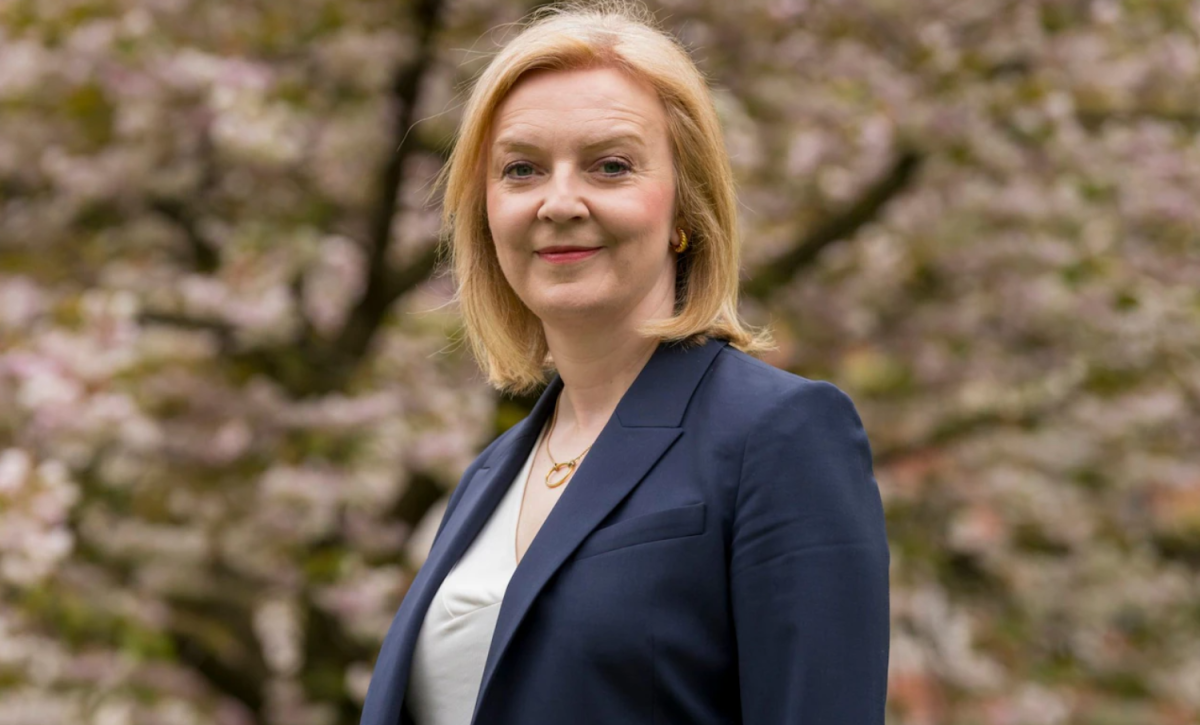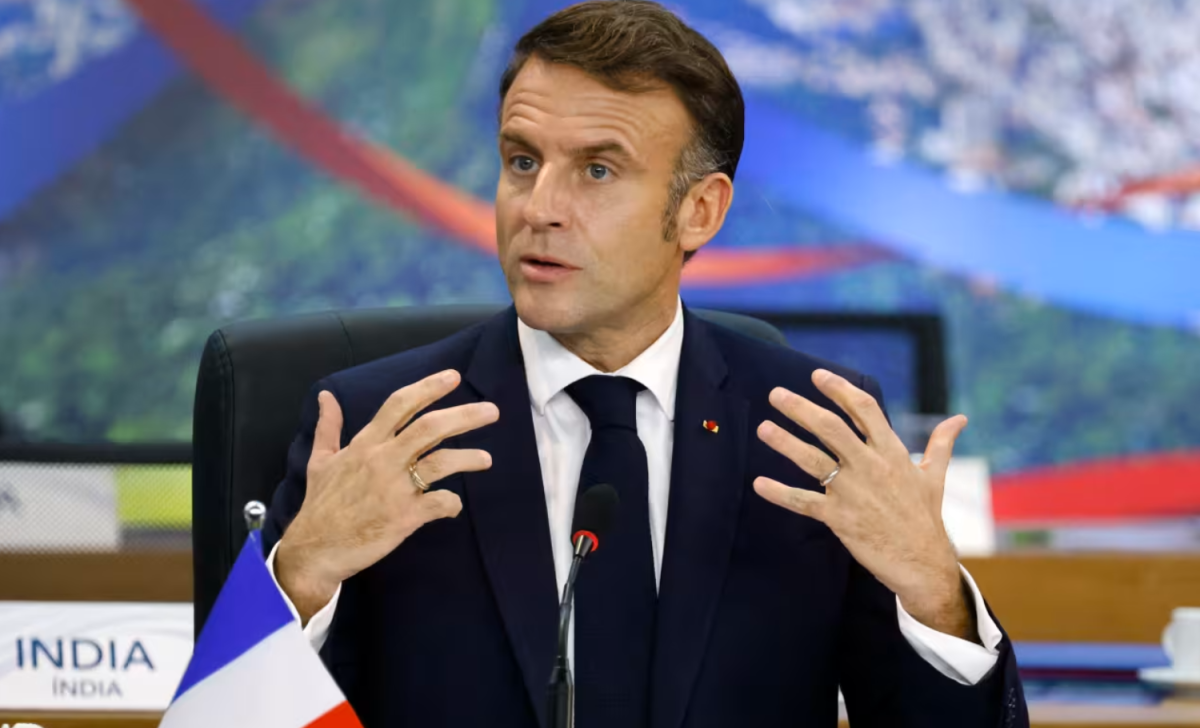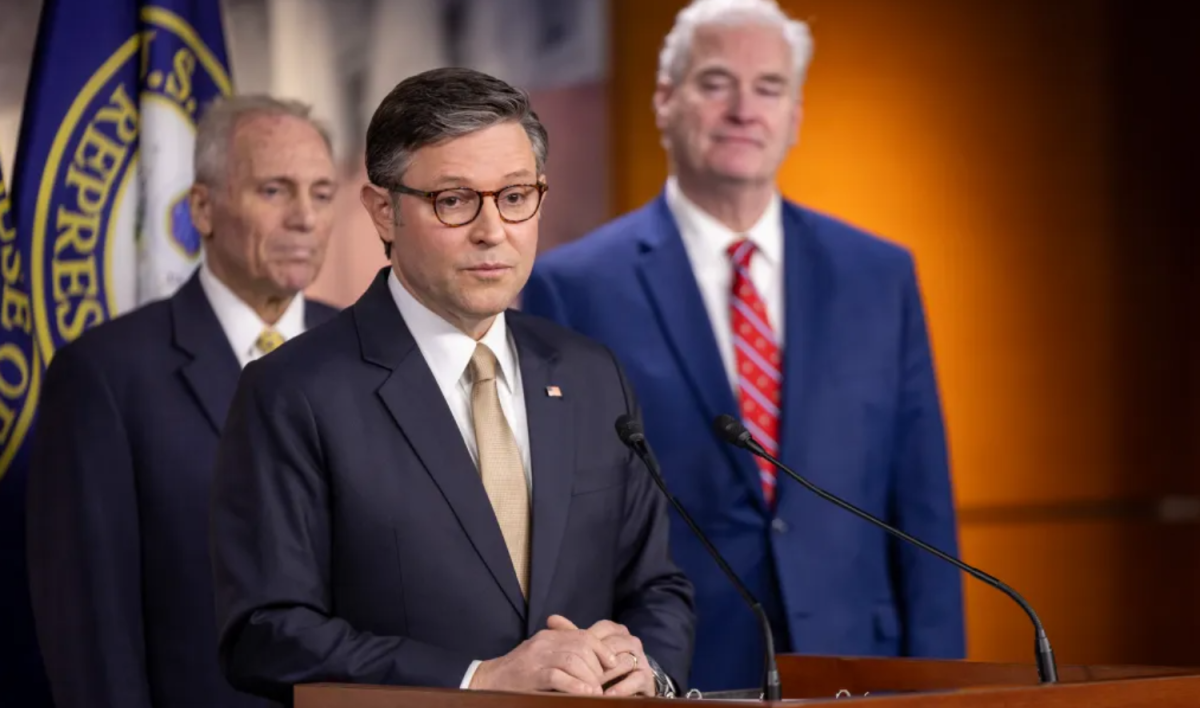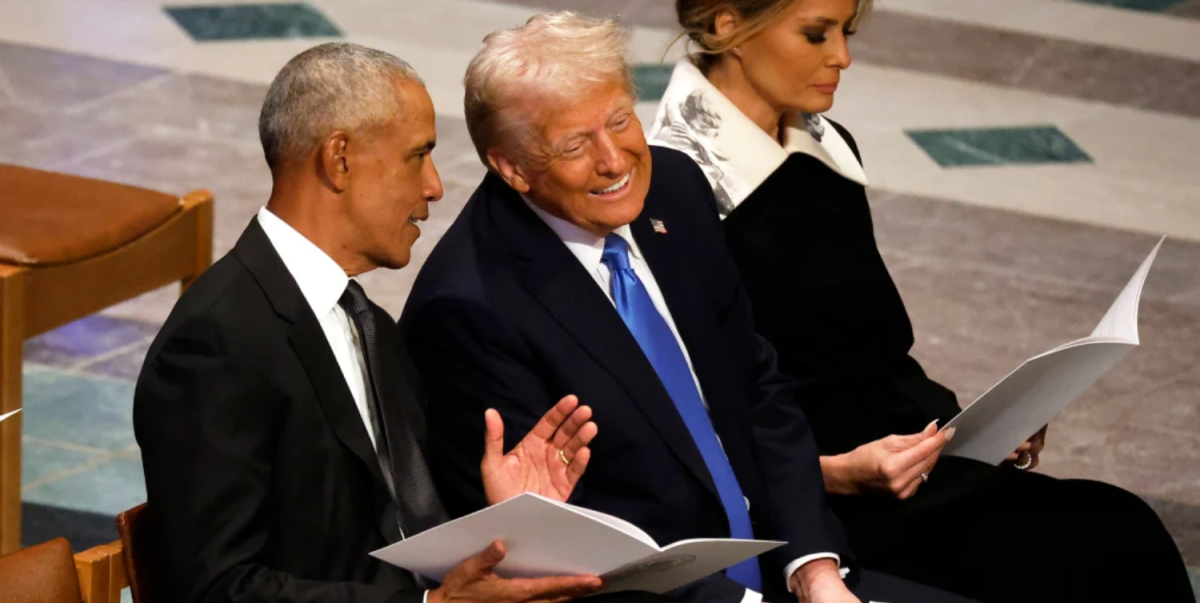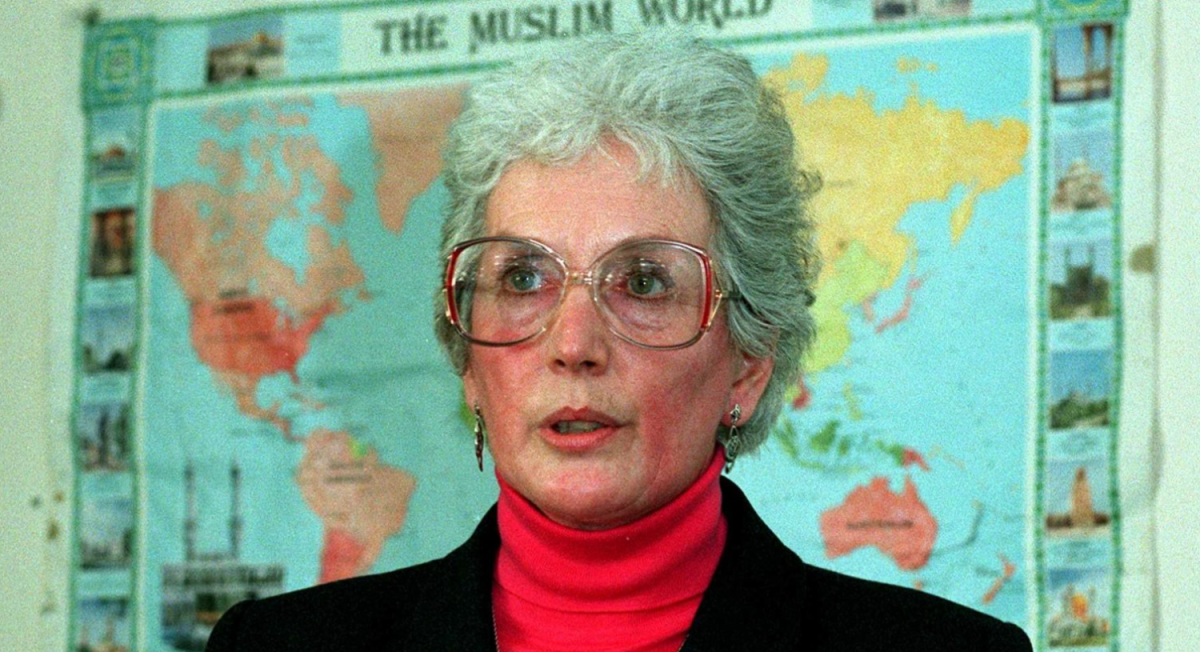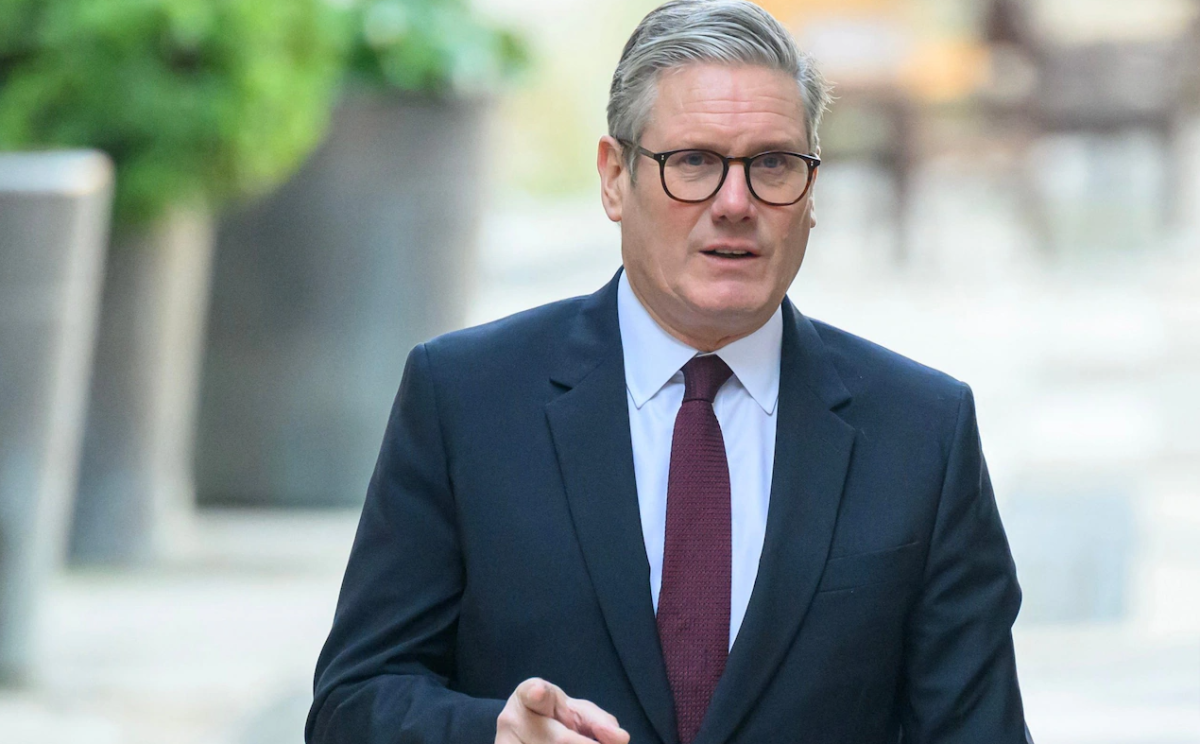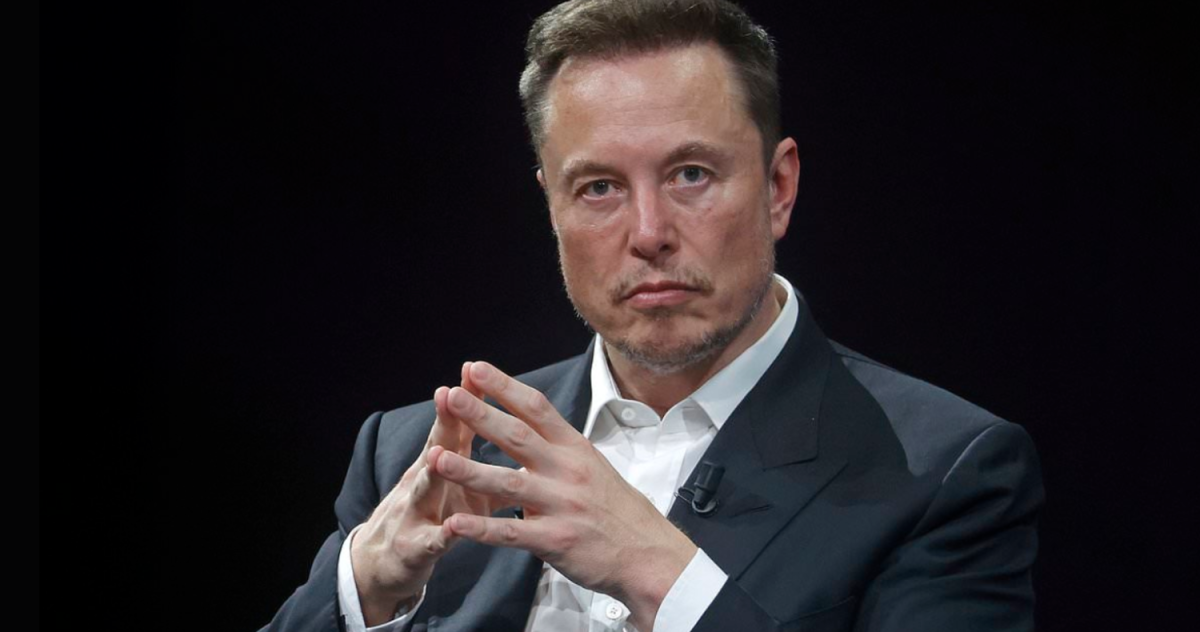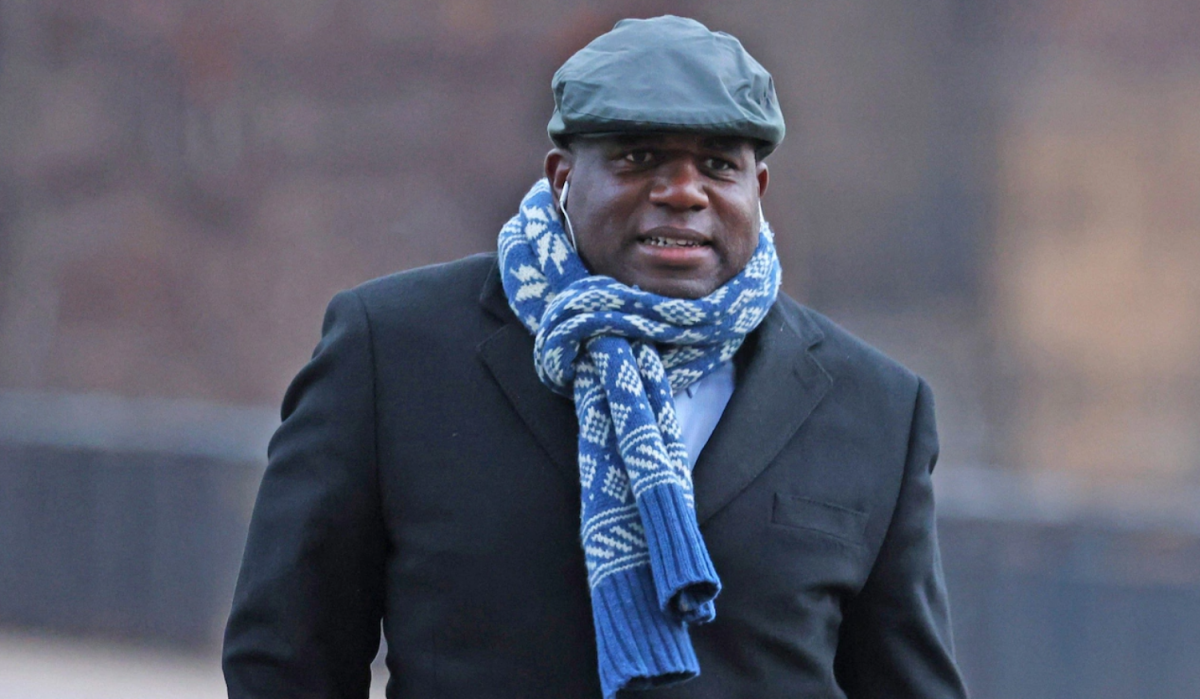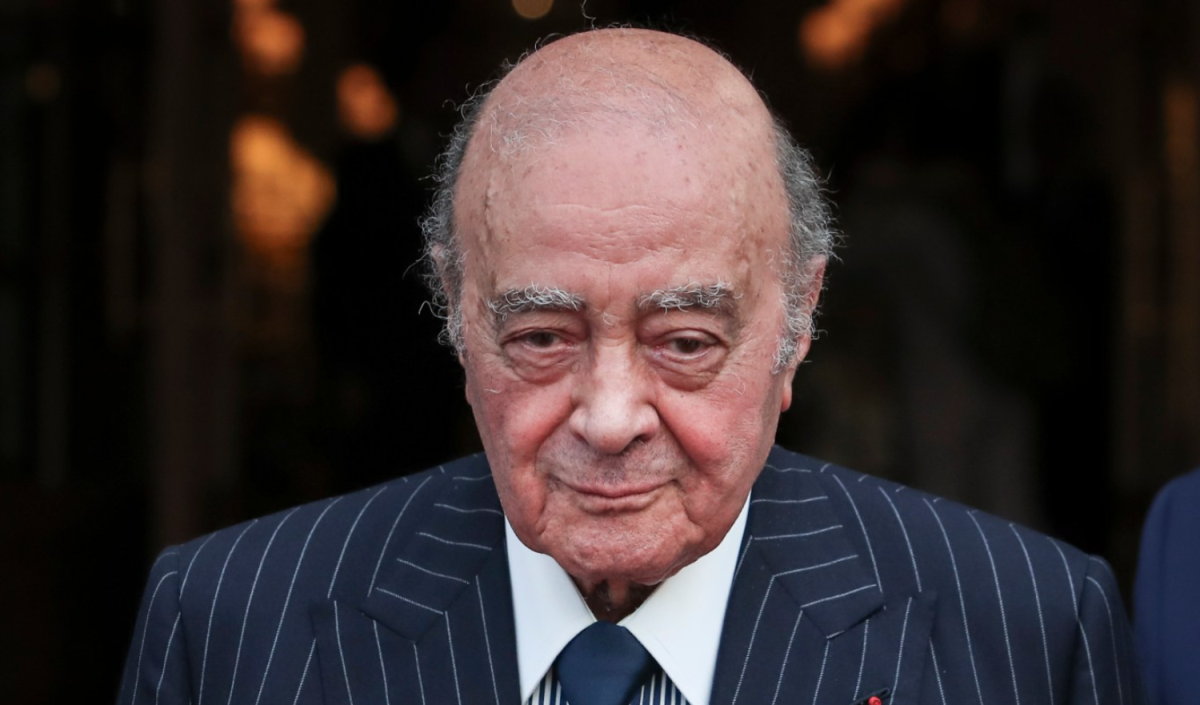-
Posts
10,807 -
Joined
-
Last visited
Content Type
Events
Forums
Downloads
Quizzes
Gallery
Blogs
Everything posted by Social Media
-

Britons Overwhelmingly Support a New Grooming Gang Inquiry
Social Media replied to Social Media's topic in World News
Off topic post removed about immigrants in Thailand @Neeranam . Please refer to the OP for the topic and no further attempts to derail it. -
The Kremlin is keeping a watchful eye on recent remarks by US President-elect Donald Trump regarding the possibility of taking Greenland from Denmark, a statement that has sparked international unease. Kremlin spokesman Dmitry Peskov emphasized Russia's vested interest in the Arctic, describing the region as being within its "sphere of national and strategic interests" and highlighting Moscow's commitment to maintaining peace and stability there. Trump’s comments, which included an unwillingness to rule out military action, have drawn sharp criticism from European leaders. EU foreign affairs chief Kaja Kallas underscored the importance of respecting Greenland’s territorial integrity and sovereignty, while German Chancellor Olaf Scholz stated unequivocally that "borders must not be moved by force." Peskov characterized Trump’s remarks as dramatic but maintained they were primarily a matter for the United States, Denmark, and other directly involved nations. However, he noted, “We are present in the Arctic zone, and we will continue to be present there,” signaling Russia’s ongoing interest in the region’s strategic and economic importance. Outgoing US Secretary of State Antony Blinken sought to calm international anxiety during a visit to Paris, dismissing the feasibility of Trump’s idea. “The idea is... obviously not a good one, but maybe more important, it’s obviously one that’s not going to happen,” Blinken said. Similarly, UK Foreign Secretary David Lammy downplayed the likelihood of Trump following through but acknowledged the destabilizing potential of his rhetoric. Greenland, an autonomous territory under Danish sovereignty, is home to a population of around 56,000 and hosts both US and Danish military installations. The island’s vast reserves of untapped mineral and oil wealth make it geopolitically significant. Greenland’s Prime Minister Mute Egede, who has been advocating for independence from Denmark, reiterated that the territory is "not for sale." Both he and Denmark’s leadership have stressed that Greenland’s future will be decided by its own people, further rejecting any notion of external interference. As Trump’s comments ripple across the international community, Russia’s stated vigilance underscores the Arctic’s growing strategic significance. With competing interests in the resource-rich region, global powers are paying close attention to developments, ensuring that any rhetoric threatening stability is met with a unified stance. Based on a report by BBC 2024-01-11
-
Liz Truss has sent a cease and desist letter to Sir Keir Starmer, urging him to stop claiming that she "crashed the economy." The letter, revealed by *The Telegraph*, describes these assertions as "false and defamatory." According to the former prime minister’s legal representatives, these statements by Starmer contributed to Truss losing her seat as the MP for South West Norfolk in the general election. The controversy centers around the fallout from Truss's "mini-Budget" in September 2022, which introduced substantial tax cuts funded by borrowing, leading to adverse reactions in financial markets. Truss’s lawyers argue that the financial upheavals did not equate to an economic crash since there was no decline in economic output or surge in unemployment, which are typical indicators of such a crisis. They cited a report from Andrew Lilico, managing director of Europe Economics and a fellow at the Institute of Economic Affairs, to support their claim. Lilico, speaking on *Planet Normal*, a podcast by *Telegraph* columnists Allison Pearson and Liam Halligan, stated, "There wasn’t any crash in the economy. The economy actually grew faster in the period immediately following the mini-Budget." He added, "It’s preposterous to claim that she crashed the economy. Exactly the opposite happened. The economy did better than had been expected." This dispute comes as current borrowing costs increase, potentially erasing fiscal headroom for Chancellor Rachel Reeves after her tax-raising Budget in October. Reeves is expected to reinforce her fiscal rules aimed at reducing borrowing, emphasizing spending cuts over new tax hikes. Recently, the pound hit a nine-month low, and the yield on 10-year gilts—an indicator of government borrowing costs—rose to 4.8%, the highest since 2008. Concurrently, a quarterly survey by the Confederation of British Industry forecasted a sharp decline in profits within the financial services sector, the steepest since the financial crisis. During the election campaign, leading Labour figures, including Starmer, used Truss’s brief tenure to criticize the Conservatives’ economic management. Truss’s legal letter explicitly states, “We are writing in relation to statements you have made publicly in respect of our client which have caused and will likely continue to cause serious harm to her reputation." The letter emphasizes that Starmer’s repeated claims about Truss "crashing the economy" are damaging and defamatory, urging him to cease making such statements. It concludes by requesting that he "immediately cease and desist from repeating the defamatory statements" to prevent further harm to Truss’s reputation. Moreover, the letter shifts some blame to the Bank of England, alleging that its mishandling of the "liability-driven investment" (LDI) crisis exacerbated market sensitivity to gilt interest rate movements. It asserts, "Those rate movements were caused by the Bank of England, and in particular by its poor handling of the LDI crisis, and its regulatory failures." Based on a report by Daily Telegraph 2024-01-11
-
In a candid admission, French President Emmanuel Macron has highlighted the need for Europe to adopt a tougher stance as Iran inches closer to nuclear weapon capability. His remarks, delivered to French ambassadors, mark a significant shift in tone, acknowledging that Iran’s nuclear program is nearing a critical threshold. Macron’s speech underscored the urgency of re-imposing snapback sanctions under the terms of the 2015 nuclear deal, a provision that allows sanctions to be reinstated if Iran violates the agreement. With an October deadline looming, Macron urged European leaders to confront Tehran’s accelerating nuclear advancements. The French president’s acknowledgment comes as Iran’s enrichment of uranium reaches alarming levels, pushing the limits of the nuclear deal. International Atomic Energy Agency (IAEA) chief Rafael Grossi recently described Iran’s actions as a "dramatic" acceleration, suggesting that the nation is close to amassing enough highly enriched uranium for multiple nuclear warheads. This development underscores the severity of the situation, with Iran potentially closer to a nuclear breakout than ever before. Despite longstanding suspicions about Tehran's nuclear ambitions, European nations have largely refrained from addressing the issue with the urgency it warrants. Macron's stark warning breaks this pattern, signaling a readiness to discuss more stringent measures in collaboration with the United States. During the Trump administration, European signatories of the 2015 deal, including France, Germany, the UK, and the EU, resisted the U.S.'s withdrawal from the pact and subsequent sanctions on Iran. However, Macron’s recent remarks indicate a potential shift, suggesting that Europe may now be more willing to align with Washington's harder stance. Macron's call for “re-engaging in dialogue” with the new U.S. administration signals a recognition that diplomatic efforts must be revitalized. This comes amid growing concerns that time is running out, leaving military options as a last resort. Israel, Europe, and the U.S. are now facing a scenario where military intervention may be necessary to prevent Iran from becoming a nuclear-armed state. In his speech, Macron didn’t just acknowledge the gravity of the situation but also the late stage at which this realization has dawned. His comments reflect a belated, yet critical, acknowledgment that Europe can no longer afford to downplay the risks posed by Iran's nuclear advancements. As diplomatic avenues narrow, the international community must grapple with the stark reality that decisive action may soon be unavoidable. Based on a report by WSJ 2024-01-11
-
The threat of terrorism in Canada “has rarely been higher,” according to a report published Wednesday following the New Year’s Day attack in New Orleans. The study, conducted by Ottawa-based Insight Threat Intelligence, highlighted a marked increase in terrorism-related activity, describing the trend as statistically significant. “The bottom line: Terrorism in Canada is on the rise,” the report declared, noting a surge in terrorism charges from 2007 to 2024. The number of charges serves as “an important indicator” of the threat level, given that such arrests often prevent planned attacks from being carried out. “Across the board, terrorism attacks and charges have increased in this country over the last 18 years,” the study emphasized. Among the 73 charges recorded during this period, most involved “religiously motivated” individuals affiliated with groups such as the Islamic State and al-Qaida. However, the report pointed to a recent shift, noting an increase in charges against individuals driven by ideological motives, reflecting “a volatile mix of geopolitical tensions and growing radicalization across ideological lines.” This growing diversity in motivations has been linked to specific incidents, including a thwarted bombing attempt at a pro-Israel rally on Parliament Hill and a conspiracy to target Pride Month events in Calgary. Other notable cases involved a father and son charged in a foiled Toronto attack, and a Pakistani student apprehended in Quebec while allegedly en route to the United States to commit a mass shooting at a Jewish center. The threat is not confined to adults. A Toronto youth was arrested in December under a terrorism peace bond and is scheduled for a court appearance next Wednesday. Insight Threat Intelligence also noted that many recent cases involve young people, with some suspects as young as 15. The investigation into these threats extends beyond Canada’s borders. The FBI is currently probing the activities of Shamsud-Din Jabbar, who visited Ontario in 2023. Jabbar is accused of killing 14 people on New Year’s Day using a truck to attack Bourbon Street in New Orleans, an act linked to the Islamic State. In a public appeal, the RCMP urged Canadians to report any information relevant to the FBI’s investigation. A Global News investigation previously reported a surge in ISIS-related cases across Canada since 2023. Yet, according to the Insight Threat Intelligence study, many successful attacks between 2007 and 2024 were carried out by those with ideological or mixed motives, further underscoring the complexity of the evolving threat landscape. The report’s findings offer a stark warning about the persistent and multifaceted nature of terrorism in Canada, highlighting the urgent need for vigilance and effective countermeasures to address the rising tide of extremism. Based on a report by Global News 2024-01-11
-
A Romanian grooming gang has been convicted of sexually exploiting ten vulnerable women in Dundee, following a thorough investigation into human trafficking, sexual exploitation, and drug supply in the Tayside area. The group’s actions were described as “deplorable” by Detective Inspector Scott Carswell of Police Scotland, who led the operation. The gang, consisting of Marian Cumpanasoiu, 37, Remus Stan, 34, Catalin Dobre, 44, Cristian Urlateanu, 41, and Alexandra Bugonea, 34, denied all charges but were found guilty after a trial at the High Court in Glasgow. Their convictions encompass a range of offenses, including rape and human trafficking. Detective Inspector Carswell revealed that the gang targeted their victims at parties where they were plied with alcohol and free Class A drugs, creating a cycle of addiction and dependency. "The women were coerced into sexual activity, which a lot of them didn’t want to do,” Carswell explained. “But as things progressed, they became so addicted to the drugs that the only way they could get them was by performing the sexual acts.” He emphasized the calculated nature of the gang’s methods, stating, “They’ve had no thought as to the impact this is having on the victims. It’s been quite controlled in that they knew what they were doing.” The convictions are the result of Operation Recloir, a Police Scotland initiative launched in late 2021 to combat suspected human trafficking in the region. Initially focused on brothel-keeping and trafficking Romanian women into Scotland, the investigation expanded in mid-2022 when evidence emerged that the gang was grooming and exploiting vulnerable local women. DI Carswell explained how the group manipulated their victims by offering free drugs and other gifts, which later became tools for coercion. “Unfortunately, this got them addicted to the Class A drugs that had been provided,” he said. Many victims were unaware they were being exploited, believing they were in genuine relationships with the gang members. "They thought they were girlfriends of the men involved, not realizing they were being groomed and used,” Carswell noted. While the investigation identified all known victims, not all were willing to engage with the inquiry. Police Scotland continues to provide ongoing support to the women involved, ensuring their long-term welfare and safeguarding. Carswell offered reassurance to those who may still need help, stating, “Even if they don’t want to engage with the police, the support is always there if they need help with anything on the back of this.” The gang is set to be sentenced at a later date, marking a critical step in addressing human trafficking and exploitation in the region. Based on a report by Sky News 2024-01-11
-
In a decisive move, the House of Representatives passed a bill on Thursday imposing sanctions against individuals enforcing the International Criminal Court’s (ICC) arrest warrant for Israeli Prime Minister Benjamin Netanyahu. The Illegitimate Court Counteraction (ICC) Act passed with a vote of 243-140, supported by 45 Democrats alongside 198 Republicans. All 140 opposing votes were from Democrats, including prominent figures such as Alexandria Ocasio-Cortez (D-NY), Ilhan Omar (D-Minn.), Rashida Tlaib (D-Mich.), House Minority Leader Hakeem Jeffries (D-NY), and former House Speaker Nancy Pelosi (D-Calif.). The legislation mandates the president to apply sanctions, such as revoking visas, against ICC officials pursuing Netanyahu, 75, and former Israeli Defense Minister Yoav Gallant, 66, in connection to Israel’s military actions against Hamas. "The ICC's decision to issue arrest warrants against the leadership of Israel represents the weaponization of international law at its most egregious," said Rep. Ritchie Torres (D-NY), justifying his support for the bill. Local Democrats including Manhattan and Brooklyn Rep. Dan Goldman, Queens Rep. Grace Meng, and Long Island Reps. Laura Gillen and Tom Suozzi also voted in favor. The only lawmaker present without voting was Rep. Thomas Massie (R-Ky.), who expressed a desire for the US to avoid entanglements in foreign disputes. In addition to targeting ICC officials, the act seeks to retract any taxpayer funding of the ICC, which neither the US nor Israel recognizes, having declined to ratify the 1998 Rome Statute that established the court. This measure echoes a similar bill passed last year with a 247-155 vote, also primarily supported by Republicans and some Democrats, but which the Democrat-controlled Senate did not consider. The prior bill responded to ICC chief prosecutor Karim Khan’s announcement to issue arrest warrants against Netanyahu and Gallant for alleged war crimes in Gaza. "We may not recognize you, but you sure as hell will recognize what happens when you target America or its allies," Rep. Brian Mast (R-Fla.) asserted in support of the bill. He further argued that the ICC's actions against Israel had emboldened Hamas and prolonged the conflict, hindering efforts to release American hostages. Based on a report by NYP 2024-01-11 Related Topics: The ICC's Credibility Crisis: Why It May Be Beyond Redemption ICC Issues Arrest Warrants for Benjamin Netanyahu and Yoav Gallant Over Alleged War Crimes Australia Urged to Rethink ICC Membership Amid Controversial Arrest Warrants Boris Johnson Accuses Starmer of Aligning with Hamas Over ICC Netanyahu Arrest Warrant Trump's Storm Looms Over the ICC
-
In a rare admission, a senior Iranian general has acknowledged the scale of Iran's defeat in Syria, marking a significant departure from the official narrative maintained by Iranian leaders. General Esbati, Iran's top-ranking commander in Syria, offered an unvarnished assessment of the situation, describing the loss of their ally, Bashar al-Assad, as a severe blow to Iran’s strategic interests. “I don’t consider losing Syria something to be proud of,” General Esbati said in a speech, an audio recording of which was published by Abdi Media, a Geneva-based news platform focused on Iran. “We were defeated, and defeated very badly. We took a very big blow, and it’s been very difficult.” His remarks shed light on the strained relationship between Iran and Assad, which reportedly deteriorated in the months leading up to Assad's fall from power. General Esbati disclosed that Assad had rejected multiple Iranian proposals to use Syria as a base to launch attacks against Israel following the Hamas-led offensive on October 7, 2023. Iran had presented Assad with detailed military plans, including the deployment of Iranian-backed militias, but Assad declined to cooperate. In addition to tensions with Assad, Esbati criticized Russia, a supposed ally, accusing it of misleading Iran during their military operations. He alleged that Russian jets, while claiming to target Syrian rebels, were in fact bombing empty fields. Furthermore, he claimed that Russia had “turned off radars” over the past year, enabling Israeli airstrikes on Iranian positions in Syria. For over a decade, Iran had supported Assad by deploying commanders and troops to bolster his regime against opposition forces and ISIS. Syria served as a crucial hub for Iran’s regional operations, providing a base for supplying weapons and funding to allied militias such as Hezbollah in Lebanon and Palestinian militants in the West Bank. Iran also established missile and drone production facilities in Syria, further cementing its strategic foothold in the region. However, the rebel coalition’s recent takeover of much of Syria has upended these plans. As the coalition works to form a new government, General Esbati emphasized Iran’s intent to adapt by recruiting insurgents in the emerging political landscape. The general’s candid remarks have resonated widely in Iran, surprising many with their stark contrast to government propaganda. Mehdi Rahmati, a Tehran-based analyst and expert on Syrian affairs, highlighted the significance of Esbati’s speech. “It shows that some senior officials are beginning to part ways with the official narrative and are being forthright with the public,” Rahmati said in a phone interview. General Esbati’s stature amplifies the impact of his words. A prominent figure in Iran’s Armed Forces, he has held various high-profile roles, including overseeing Iran’s cyber division and directing military operations in Syria. His responsibilities extended to coordinating with Syrian and Russian officials, making his acknowledgment of defeat all the more remarkable. Iran now faces the challenge of recalibrating its strategy in the region, grappling with the loss of a key ally and the implications for its broader geopolitical ambitions. Based on a report by NYT 2024-01-11
-
In an unexpected acknowledgment, former President Donald Trump suggested that he and former President Barack Obama “probably do” like each other. The remark came during a brief exchange with a reporter on Thursday, prompted by a viral video of the two leaders chatting amicably during President Jimmy Carter's funeral. An adviser to Obama did not immediately respond to requests for comment on the interaction or Trump’s statements. The relationship between the two has occasionally displayed signs of cordiality. After Trump’s 2016 election victory, Obama invited him to the White House for a meeting, which both leaders described in positive terms. Obama called it an “excellent” and “wide-ranging” conversation, while Trump expressed gratitude, saying, “It was a great honor being with you.” Though their political ideologies and leadership styles remain markedly different, moments like these highlight a more personal dimension to the relationship between two figures often perceived as unrelenting adversaries. Whether fleeting or sincere, such interactions hint at the complex dynamics underlying their public personas. Based on a report by NBC 2024-01-11
-
Alec Baldwin has taken legal action against New Mexico prosecutors and law enforcement officials, accusing them of malicious prosecution, suppression of evidence, and defamation. This follows the dismissal of criminal charges against him in July 2024 related to the fatal shooting of cinematographer Halyna Hutchins on the set of the 2021 film *Rust*. In a 73-page lawsuit filed Thursday in New Mexico’s First Judicial District, Baldwin’s legal team alleges that the prosecutors were “blinded by their desire to convict Alec Baldwin for all the wrong reasons, and at any cost.” The actor contends that the state’s pursuit of charges against him, including involuntary manslaughter, was marked by significant misconduct, including the withholding of key evidence. The incident at the heart of the case occurred during the filming of *Rust*, a Western in which Baldwin was both the lead actor and a producer. A revolver Baldwin was handling, which he believed contained dummy rounds, discharged on set, killing Hutchins and injuring director Joel Souza. While Baldwin denied any wrongdoing from the outset, the case gained national attention. In April, Hannah Gutierrez-Reed, the film's armorer responsible for overseeing the weapon, was found guilty of involuntary manslaughter and sentenced to 18 months in prison. However, Baldwin’s charges were dropped by a New Mexico judge, who determined that prosecutors had withheld evidence from his defense team. The lawsuit names several defendants, including special prosecutor Kari Morrissey, District Attorney Mary Carmack-Altweis, and Andrea Reeb, the first special prosecutor initially appointed to the case who was later elected to the New Mexico State House. Baldwin’s legal team accuses these officials of engaging in “intentional concealment of exculpatory evidence and then lying from the witness stand during trial about their coverup.” “Although no verdict in this civil case can undo the trauma the state’s threat of conviction and incarceration has inflicted, Alec Baldwin has filed this action to hold defendants responsible for their appalling violations of the laws that governed their work,” Baldwin’s attorneys wrote in the lawsuit. The actor’s legal team further argues that prosecutors should not be shielded by immunity typically granted to public employees acting within their official capacity. The lawsuit challenges the legal protections provided under New Mexico law, asserting that the actions of the prosecutors went far beyond their scope of duty. As Baldwin seeks accountability for what he describes as a deeply flawed prosecution, the lawsuit underscores his ongoing contention that he was unjustly targeted in the case. For Baldwin, this legal action represents not only an effort to clear his name but also a stand against what his attorneys call a miscarriage of justice. Based on a report by Daily Beast 2024-01-11
-
Kim Porter, the late model, actress, and long-time partner of rap mogul Sean "Diddy" Combs, is once again at the center of controversy as claims resurface about a diary she allegedly kept detailing troubling aspects of her relationship with the music icon. Rapper Al B. Sure!, Porter's former partner and father of one of her children, has made explosive allegations in a new documentary, *Diddy: Making of a Bad Boy*, set to premiere on Peacock. Sure! asserts that Porter was compiling damning evidence about Diddy’s personal life in the years leading up to her sudden death in 2018. He believes her death, officially ruled as pneumonia by the coroner, is suspicious. "What I do know is that before her death she was keeping a diary," Sure! claims in the documentary. "Someone got the passcode to her phone and computer and found out what was writing, what was going on behind closed doors." Porter, who was just 47 years old when she passed, had been in an on-and-off relationship with Diddy from 1994 until their final split in 2007. Together, they shared three children: Christian "King" Combs and twin daughters Jessie and D'Lila. Diddy also became a father figure to Porter's son, Quincy Brown, from her previous relationship with Sure!. Despite their split, Porter and Diddy maintained a close connection until her death, which sparked widespread conspiracy theories due to her seemingly good health. DailyMail.com previously reported on what was purported to be Porter's diary, titled *Kim's Lost Words*, a 60-page manuscript alleging lurid details about Diddy’s private life. It included claims of violent episodes, philandering, and even tapes involving inappropriate behavior with young musicians. While the existence of the diary has been vehemently denied by Porter's children, including Quincy, Sure! suggests in the documentary that Porter was preparing to expose Diddy. "She began to confide in me," Sure! says in the film. "She said something's not right. His soul has gone completely dark like he's just not there. She made me promise on her son's life not to ever reveal anything because she was in complete fear of my life." He goes on to suggest that her sudden illness and subsequent death may have been connected to her alleged intentions to reveal Diddy’s secrets. "Before her death, she was going to do what Ventura did with her lawsuit—blowing the lid off this entire situation," Sure! adds, referencing another high-profile case involving accusations against Diddy. The alleged diary includes disturbing claims about Porter's discovery of incriminating tapes involving Diddy and other individuals, some of whom were under his management. One purported entry recounts Porter falling ill and dramatically texting her friends with the cryptic message, "He got me," before calling 911. Porter’s family, including her children and an attorney representing Diddy, have firmly denied the existence of the diary and dismissed the claims as a "horrific conspiracy theory." In an Instagram post, Quincy Brown labeled the allegations as baseless and false, stating, "This is not the way we honor her legacy." Diddy has consistently denied any involvement in Porter's death or the allegations surrounding it. Despite the official determination of pneumonia as her cause of death, the controversy and speculation continue to cast a shadow over her legacy and the circumstances surrounding her passing. Based on a report by Daily Mail 2024-01-11
-
- 1
-

-
Italian Prime Minister Giorgia Meloni has directed criticism toward George Soros, asserting that the long-time financier and philanthropist poses a greater threat in European politics than Elon Musk. In her remarks, Meloni argued that Musk merely expresses opinions, while Soros actively finances political entities. During a discussion about her association with Musk, Meloni stated that Soros’s financial involvement in political matters constitutes dangerous interference. "Musk does not go around financing parties, associations, and politicians like George Soros. Yes, that is a dangerous interference in the affairs and sovereignty of nation states. But when it happens, it is called philanthropy," Meloni remarked. For years, Soros, 94, has been a target for hard-right movements in Europe and the US, who accuse him of promoting open borders and financing migration. Before becoming Italy's prime minister in 2022, Meloni was vocal about her belief that migration undermines European cultures and serves the interests of financiers like Soros. "When you are a slave, you act in Soros’ interests," she declared in the Italian parliament in 2018. Meloni’s views align with the "great replacement" theory, a concept popular among the US right, which claims that native populations are being replaced by migrants. However, since assuming office, Meloni has stepped back from linking migration to a Soros-led conspiracy, leaving such notions to her deputy prime minister, Matteo Salvini. Meloni’s association with Musk has been a topic of interest, particularly as she describes him as a "genius" and he has complimented her by saying she is "more beautiful on the inside than on the outside." At a recent press conference, Meloni revisited her critique of Soros’ financial contributions to political causes when questioned about Musk's influence in European politics. She did not address reports that Musk had considered donating to Nigel Farage’s Reform Party last year, although the plan may have been derailed by Musk’s critical stance on Farage. While Meloni did voice a rare criticism of Musk, responding to his derogatory description of British minister Jess Phillips as an "evil witch," she noted that such language is part of the political landscape. "Do you want a list of the epithets aimed at me by influential people on social media in recent years?" she asked. George Soros was approached for comment on Meloni’s statements. Based on a report by Politico 2024-01-11
-
Mark Taylor, a former personal assistant to Ann Cryer, the MP who first exposed grooming gangs in 2002, has expressed concern over the lack of open discussion about the ethnicity of the perpetrators. Taylor believes that this absence of dialogue has created a "vacuum" now being filled by figures like Elon Musk. Taylor, who served as Cryer’s aide from 2001 to 2008, stated that politicians have consistently failed to tackle the problem adequately, both in the past and present. "When Ann tried to confront this in 2002, the politicians were just not grasping the problem, and nor are they doing so now," Taylor said. Cryer, who represented Keighley, West Yorkshire, was approached by several mothers in distress, claiming that their daughters were being groomed by British-Pakistani men near school gates. When Cryer challenged the police and social services, who initially refused to act, she faced harsh criticism, was labeled a racist, and even faced opposition from within her own party. The issue only garnered serious attention after investigative journalist Andrew Norfolk published a series of exposés in *The Times* starting in January 2011. The police and Crown Prosecution Service (CPS) then began to address the scandal. Taylor voiced his worry that the work done to counteract the influence of far-right figures like Nick Griffin and the British National Party (BNP) might be undone. "There is now a vacuum that the right and people like [Elon] Musk are going to fill. There is still the feeling that things are unfair," he said, stressing the need for open discussions on immigration and its impacts. While affirming he is not against immigration, Taylor pointed out the need to acknowledge both positive and negative consequences of concentrated immigrant communities in towns and cities. "It’s about being able to have open discussion. We’re not knocking [immigration], we’re just trying to work out the good bits and the bad bits," he explained. Andrew Norfolk shared similar sentiments, criticizing the national inquiry into child sex abuse for avoiding the core issues that enabled grooming gangs to thrive. He emphasized that true eradication of such abuse requires thorough research into the intersections of religion, culture, and social cohesion. Cryer’s son, Lord Cryer, commended his mother for her courage in speaking out and highlighted the threats she had received as recently as five years ago, reinforcing the ongoing challenges in addressing these sensitive issues. Based on a report by The Times 2024-01-11 Related Topics: Britons Overwhelmingly Support a New Grooming Gang Inquiry Grooming Networks Persist in Oxford, Warns Former Investigator Convicted Rochdale Grooming Gang Leader Still in the Town & not Deported Starmer Condemns 'Lies and Misinformation' Over Child Sexual Abuse UK Ex-MP Claims Grooming Gang Ethnicity Was Suppressed to Protect Votes Elon Musk Advocates for Tommy Robinson’s Release Amid Criticism of UK Leadership Kemi Badenoch Urges National Inquiry into UK Grooming Scandal
-

Britons Overwhelmingly Support a New Grooming Gang Inquiry
Social Media posted a topic in World News
A significant majority of Britons favor a fresh national inquiry into the grooming gangs scandal, according to a recent YouGov survey. The poll reveals that more than three-quarters of the public support calls for a thorough investigation, escalating pressure on political leaders to address the issue comprehensively. The survey, commissioned by the Women’s Policy Centre, found that 76 percent of respondents advocate for a new inquiry into the systemic sexual abuse of children by grooming gangs. This sentiment transcends political affiliations, with nearly two-thirds of Labour voters, 84 percent of Conservative supporters, and a striking 91 percent of Reform party backers expressing support. In contrast, only 13 percent of adults agree with the Government’s stance that no further investigation is necessary. Among Labour voters, just one in five shares this view, signaling a disconnect between party leadership and its base. The poll’s findings emerge amidst a heated political debate on being explicit regards the ethnicity of the majority of these gangs and why they were hidden and concealed as a result. Labour MPs recently opposed a Conservative proposal in the House of Commons aimed at initiating a national inquiry. This opposition comes despite mounting calls for action, including vocal advocacy from Andy Burnham, the Labour Mayor of Greater Manchester. Burnham has urged the Government to consider a “limited national inquiry” to address the issue. However, his appeals have been met with resistance from senior Labour figures, including Culture Secretary Lisa Nandy. “I wouldn’t of course ever rule out any further inquiries at all,” she told Sky News, but maintained her opposition to Burnham’s suggestion. Meanwhile, Labour veteran Baroness Harriet Harman has proposed a targeted approach, suggesting a “mini-inquiry” to examine how council workers and police can better handle race and ethnicity-related challenges. She highlighted the challenges faced by individuals such as Ann Cryer, a former Labour MP, who faced accusations of racism when addressing sensitive issues like forced marriage and grooming gangs. “The question is how people actually deal with this,” Baroness Harman said, emphasizing the need for nuanced solutions. The issue has also gained attention outside traditional political circles. Tech billionaire Elon Musk, a prominent figure on social media platform X, has repeatedly spotlighted the scandal, intensifying public discourse. Paola Diana, chair of the Women’s Policy Centre, emphasized the urgency of the matter. She stated, “The poll proves the demands for a fresh inquiry are a national issue of huge concern.” The widespread public support underscores the need for a comprehensive response, one that addresses past failures while ensuring systemic changes to prevent future abuses. As the debate continues, the Government faces growing pressure to heed the overwhelming public demand for accountability and reform. The question remains whether political leaders can align their actions with the public’s expectations to address this deeply troubling issue. Based on a report by Daily Telegraph 2024-01-11 Related Topics: Politicians Must Address the Ethnicity of Grooming Gangs, Says Whistleblower’s Aide Grooming Networks Persist in Oxford, Warns Former Investigator Convicted Rochdale Grooming Gang Leader Still in the Town & not Deported Starmer Condemns 'Lies and Misinformation' Over Child Sexual Abuse UK Ex-MP Claims Grooming Gang Ethnicity Was Suppressed to Protect Votes Elon Musk Advocates for Tommy Robinson’s Release Amid Criticism of UK Leadership Kemi Badenoch Urges National Inquiry into UK Grooming Scandal -
In a significant ruling, the US Supreme Court has turned down President-elect Donald Trump's final attempt to postpone his sentencing in the criminal hush-money case. The decision, delivered on Thursday evening, was split 5-4 against Trump's request for an automatic stay of his sentencing, slated for Friday. The case stems from Trump's conviction for falsifying records to mask reimbursements for a $130,000 payment made to adult film star Stormy Daniels in 2016, disguised as legal expenses. Justice Juan Merchan, who has been overseeing the case, indicated he would not consider a prison sentence for Trump. Reacting to the Supreme Court's decision, Trump called the case a "disgrace" but acknowledged that the ruling was "a fair decision, actually." Referring to Justice Merchan, Trump commented, "It's a judge that shouldn't have been on the case," and added, "they can have fun with their political opponent." Later, on his Truth Social platform, Trump dismissed the case as "the pathetic, dying remnants of the Witch Hunts against me" and vowed it would not distract him. In a rare alignment, two conservative justices—John Roberts and Amy Coney Barrett—joined the three liberal justices in denying Trump’s request for a delay. The dissenting justices, Clarence Thomas, Samuel Alito, Neil Gorsuch, and Brett Kavanaugh, were in favor of granting Trump's petition. The decision comes amid controversy surrounding Justice Alito, who had a phone call with Trump the day before the ruling, during which Alito recommended a former law clerk for a position in Trump's incoming administration. Prior to the Supreme Court's ruling, three lower New York courts had already dismissed Trump's efforts to delay the sentencing. The justices concluded that Trump’s concerns could be addressed during an appeal and that the burden of attending a sentencing was "insubstantial." Trump's legal team also sought to have the Supreme Court consider whether a president-elect is immune from criminal prosecution. However, Manhattan prosecutors countered that there was a "compelling public interest" in holding the sentencing as planned and argued against any intervention. Following Trump's guilty verdict in May 2024, his sentencing was initially scheduled for July. However, Trump’s lawyers managed to secure three postponements from Justice Merchan. Last week, Justice Merchan declared that the sentencing would proceed on January 10, just days before Trump's inauguration. In a flurry of legal maneuvers, Trump’s attorneys filed multiple appeals to delay the sentencing. But New York courts consistently rejected these bids, leading to the final appeal to the Supreme Court on Wednesday. Trump’s legal team argued that a stay was necessary "to prevent grave injustice and harm to the institution of the Presidency and the operations of the federal government," but their plea was ultimately denied. Based on a report by BBC 2024-01-10
-

Grooming Networks Persist in Oxford, Warns Former Investigator
Social Media replied to Social Media's topic in World News
Off topic diversion post removed. This is not about a lone paedophile who stabbed his victim or his parents responsiblity on that. Please discuss the topic. -
The Metropolitan Police have handed over a comprehensive evidence file to the Crown Prosecution Service (CPS) concerning a Premier League footballer accused of multiple rape allegations. The player, whose identity remains protected due to legal restrictions, was initially arrested in July 2022 in Barnet, north London, following claims that he had raped a woman in her 20s the previous month. While detained, the man, who is in his 30s, faced further allegations of raping another woman in April and June 2021. However, the police later confirmed that no further action would be taken regarding the June 2021 claim, citing that the relevant legislation was not in place at the time of the alleged incident. The investigations continued, and in February 2023, the footballer was interviewed under caution regarding a separate sexual offence alleged to have occurred in Barnet in February 2022. The Metropolitan Police have confirmed that the player remains under investigation for a series of alleged sexual offences said to have taken place between 2021 and 2023. A spokesperson for Scotland Yard stated, "Our officers are investigating following a number of reports of alleged sexual offences between 2021 and 2023." The statement continued, "A full file has been passed to the Crown Prosecution Service, and detectives continue to work with prosecutors. Those who have come forward to police continue to receive support from Met officers." The accused footballer has denied all allegations against him. The case remains under review as investigators collaborate with prosecutors to determine the next steps. Based on a report by Sky News 2024-01-10
-
Elon Musk, the world’s richest man, has voiced his support for British farmers protesting against proposed changes to inheritance tax under the Labour Party. Farmers argue that the policy could jeopardize the future of the agricultural industry, and their grievances reached new heights with a dramatic demonstration in East Yorkshire. Dozens of tractors paraded in convoy through the streets of Beverley, East Yorkshire, as part of the farmers’ campaign. Their protests targeted Labour’s plan to impose a 20% inheritance tax on agricultural assets exceeding £1 million, a move farmers believe could devastate family-run farms. Musk, known for his provocative social media presence, expressed his support for the rural protestors with a post on X. Responding to an image of the tractor demonstration and a post criticizing "Socialist Labour tax policies that hurt farmers," Musk wrote, "Good for the farmers." This is not the first time Musk has commented on the issue. In November, he described Britain’s tax plans as "going full Stalin" in reaction to an article defending the policy. The statement appeared to allude to Soviet leader Joseph Stalin's collectivization policies of the 1930s, which forcibly redistributed farmland and caused widespread hardship. The East Yorkshire protests culminated in a key vote by councillors at County Hall in Beverley. A motion opposing the inheritance tax plan passed overwhelmingly, with 51 councillors voting in favor and only five against. The council has pledged to write to the Chancellor, Prime Minister, and Defra Secretary, urging them to reverse the policy. Conservative councillor Sean McMaster, who proposed the motion, called the tax changes "life-altering" and "devastating" for farming families who have worked the land for generations. He emphasized that the proposed policy would undermine food security and harm the rural economy. "Metropolitan elites do not understand rural communities," McMaster declared. "We must stand with our farmers who work hard all year round to provide what we all take for granted. This government has bitten the hand that feeds the nation. Our farmers will not stand for it. The family farm tax needs to be stopped." While Musk’s endorsement drew attention to the issue, NFU President Tom Bradshaw refrained from commenting on the billionaire's intervention. However, he acknowledged the widespread discontent among farmers, stating that the protests demonstrate the agricultural community's strong opposition to the inheritance tax proposal. As the debate intensifies, the protests highlight the tension between rural communities and policymakers, with farmers determined to protect their livelihoods and the future of their industry. Based on a report by Daily Mail 2024-01-10
-
Ricaurte Vásquez Morales, the head of the Panama Canal Authority, has strongly refuted claims made by President-elect Donald Trump regarding China’s alleged control over the crucial trade route and issues surrounding canal fees. In an interview with *The Wall Street Journal*, Vásquez Morales labeled Trump's assertions as “unfounded,” emphasizing that China has no role in the canal’s operations. "China has no involvement whatsoever in our operations," Vásquez Morales stated, addressing the widespread concerns sparked by Trump's comments. He reassured that the Panama Canal operates under strict adherence to international law and the neutrality treaty, which prevents favoritism toward any country, including China and the U.S. "There are no exceptions to the rules, and we cannot discriminate for China, the U.S., or anyone else," he clarified. "This will violate the neutrality treaty, international law, and it will lead to chaos." Trump has persistently suggested that the U.S. should regain control over the Panama Canal, a sentiment he reiterated during a recent press conference. Trump refused to rule out the possibility of deploying the U.S. military to seize control of the canal. "Look, the Panama Canal is vital to our country, it's being operated by China, China," Trump stated. "And we gave the Panama Canal to Panama, we didn’t give it to China." However, the Panama Canal has been under Panamanian control since 1999, following an agreement initiated by President Jimmy Carter in 1977. Despite Trump’s assertions, Vásquez Morales pointed out that while China has made significant investments in Panama through construction projects and manages two of the country’s five major ports, this does not equate to controlling the canal. Trump also claimed that Panama was seeking $3 billion for canal repairs and suggested that American shipping and U.S. Navy ships are subjected to higher fees. Vásquez Morales dismissed these allegations, stating that Panama has not requested any funds from the U.S. for the canal and expressed uncertainty about the financial references made by Trump. "We have not requested any funds from the U.S. for the canal, and I'm unsure what money he is referring to," he told *The Wall Street Journal*. Moreover, Vásquez Morales denied any discriminatory fee practices against U.S. ships. He underscored that U.S. Navy vessels receive priority passage through the canal as stipulated by the treaty. "U.S. Navy vessels, in accordance with the treaty, get priority passage through the canal," he affirmed, countering the narrative of preferential treatment or increased charges for American ships. In the face of Trump's provocative comments, Vásquez Morales remains steadfast in upholding the Panama Canal's neutrality and independence, ensuring its operations are free from external political influences and maintaining the integrity of this vital global trade route. Based on a report by The Hill 2024-01-10
-
Retiring President Biden became a great-grandfather Wednesday when his granddaughter Naomi gave birth in Los Angeles — with Biden announcing the “good news” as three large wildfires raged nearby. “The good news is, I’m a great-grandfather as of today,” Biden, 82, said during a briefing on the blazes in the Pacific Palisades, which have killed at least two people and left dozens more homeless. “I’ll remember this day for a lot of reasons,” the president told reporters at a Santa Monica fire station before declining to answer questions from the press about the natural disaster, which has destroyed at least 1,000 buildings. Those destroyed buildings did not appear to include the Malibu home of disgraced first son Hunter Biden, according to the president. “It’s astounding what has happened,” the commander in chief said. “Only one piece of good news: my son lives out here and his wife. They got a notification yesterday that their home was probably burned to the ground. Today, it appears that it’s still standing, they’re not sure.” Based on a report by NYP 2024-01-10
-
Sir David Davis, a senior Conservative MP, has urged Parliament to reconsider Lucy Letby’s case, arguing that the poor quality of care in the NHS, rather than Letby, is “most likely” responsible for the tragic deaths of babies at The Countess of Chester Hospital. Davis’s call for a retrial has stirred significant debate, marking the first formal discussion of the case in the House of Commons. Letby, a neonatal nurse, was handed 15 whole life sentences for the murder of seven infants and the attempted murder of seven others between 2015 and 2016. However, Davis, after eight months of extensive research, now challenges the verdict. He pointed to alternative explanations and criticized the judicial process, which he believes failed to handle complex medical and statistical evidence properly. “There was no hard evidence against Letby; nobody saw her do anything untoward,” Davis stated. He emphasized that the hospital's neonatal unit might have lacked the necessary resources and skills to care for such vulnerable infants. “It is a clear miscarriage of justice by a judicial system that could not manage admittedly difficult statistical and medical scientific evidence,” he told the Commons. The intervention from Davis, known for his advocacy for civil liberties and his role in exposing injustices like the Post Office scandal, has sparked broader scrutiny. Numerous professionals, including doctors, scientists, and statisticians, have questioned the evidence presented against Letby. Davis recounted his initial belief that Letby was guilty, a perspective that shifted after consulting experts from the Royal Statistical Society and the Royal College of Paediatrics and Child Health. Adding to the controversy, Davis highlighted that the jury was never informed of an outbreak of the deadly Pseudomonas bacteria in the neonatal ward, a significant oversight noted by The Telegraph. “It’s hard to see how we can eliminate this as a cause of death or collapse for some of these babies,” Davis remarked. MP Jesse Norman, representing the area where Letby’s family resides, described the revelations as “deeply troubling and distressing on so many different levels.” Moreover, the Crown Prosecution Service (CPS) is under scrutiny for possibly breaching the Code for Crown Prosecutors by instructing police to abandon a thorough statistical inquiry into Letby’s presence during the deaths. Professor Jane Hutton, a medical statistics expert from Warwick University, was initially consulted by Chester Police but was later removed as an expert following CPS directives. Davis stressed that this decision was critical, as one of the pivotal pieces of evidence was a shift chart indicating Letby’s presence during the incidents. New evidence from prominent neonatologists now suggests alternative explanations for the deaths, such as a consultant accidentally causing severe internal bleeding in one infant, known as “Baby O,” and suboptimal care in another case, “Baby C.” Letby’s convictions have been upheld, and her right to appeal was denied. Nevertheless, her new legal team, led by barrister Mark McDonald, is challenging this decision in the Court of Appeal and plans to take the case to the Criminal Cases Review Commission. The ongoing reviews by Letby’s defense continue to cast doubt on the initial verdict, fueling the call for a retrial. Based on a report by Daily Telegraph 2024-01-10
-
President-elect Donald Trump has once again criticized California Governor Gavin Newsom for his handling of the state's wildfire prevention efforts, following the deadly Palisades fire currently ravaging Los Angeles. Trump, during his first term, had repeatedly warned Newsom about what he deemed "terrible" forest management, holding him accountable for the recurring wildfires in California. In a 2019 post on X, Trump declared, “The Governor of California, @GavinNewsom, has done a terrible job of forest management. I told him from the first day we met that he must ‘clean’ his forest floors regardless of what his bosses, the environmentalists, DEMAND of him. Must also do burns and cut fire stoppers.” He continued, “Every year, as the fire’s rage & California burns, it is the same thing—and then he comes to the Federal Government for $$$ help. No more. Get your act together Governor. You don’t see close to the level of burn in other states.” Trump’s criticism intensified during the Kincade Fire in Sonoma County in late 2019 and has resurfaced ahead of his impending inauguration. On Truth Social, he blamed Newsom’s environmental policies for the Los Angeles County fires, accusing the governor of neglecting necessary water management. “Governor Gavin Newscum refused to sign the water restoration declaration put before him... Now the ultimate price is being paid. I will demand that this incompetent governor allow beautiful, clean, fresh water to FLOW INTO CALIFORNIA! He is the blame for this,” Trump wrote. Responding to Trump’s accusations, Izzy Gardon, Newsom’s director of communications, told Fox Digital, “We’re focused on protecting lives and battling these blazes—not playing politics.” Gardon refuted Trump’s claims, stating, “There is no such document as the water restoration declaration—that is pure fiction. The Governor is focused on protecting people, not playing politics, and making sure firefighters have all the resources they need.” Throughout his first presidency, Trump frequently scrutinized Newsom's wildfire prevention strategies, even threatening in 2019 to cut off federal funds unless significant reforms were made. “Billions of dollars are sent to the State of California for Forest fires that, with proper Forest Management, would never happen. Unless they get their act together...I have ordered FEMA to send no more money. It is a disgraceful situation in lives & money!” he warned on X. Assemblyman James Gallagher echoed Trump’s sentiments in 2020, blaming the Democratic leadership for failing to manage the state's forests effectively. “We have overgrown forests with brush piles 10 feet high and dead and dying trees, and it’s a tinderbox waiting for a spark,” Gallagher said on Fox News. Governor Newsom had pledged to reform California's wildfire prevention approach in 2019, but a 2021 NPR investigation revealed that he overstated the achievements. “Newsom has claimed that 35 ‘priority projects’...resulted in fire prevention work on 90,000 acres. But the state’s own data show the actual number is 11,399,” reported Scott Rodd. In response to the investigation, Newsom’s office maintained that the state’s wildfire response had not diminished. The Wildfire and Forest Resilience Action Plan has reportedly achieved or begun working on all 99 of its key actions, with the state hiring 3,000 additional firefighters since 2019. Newsom emphasized the state’s commitment on X, stating, “California has deployed 1400% firefighting personnel & hundreds of prepositioned assets to combat these unprecedented fires in LA.” Based on a report by NYP 2024-01-10
-
David Lammy once claimed that condemning the ethnicity of grooming gangs “panders to the far-Right.” The remarks came after Sajid Javid, then serving as home secretary, commented on the conviction of 20 men, primarily of Pakistani heritage, involved in a series of heinous crimes in Huddersfield in 2018. The convicted men were responsible for a horrific catalogue of rape and abuse against young girls, some as young as 11 years old. The impact on the victims was devastating, with one attempting suicide, another undergoing an abortion, and two victims living with learning disabilities. After the trials concluded on October 19, 2018, Javid expressed his condemnation of the perpetrators. He stated: “These sick Asian paedophiles are finally facing justice. I want to commend the bravery of the victims. For too long, they were ignored. Not on my watch. There will be no no-go areas.” However, Javid’s comments drew criticism from several quarters, including Lammy, who was then a backbench Labour MP. In an interview with *The Guardian*, Lammy said, “Sajid Javid has brought a great office of state into disrepute. By singling out ‘Asians,’ he not only panders to the far-Right but increases the risk of violence and abuse against minorities across the country.” Javid, himself of British Pakistani heritage, later doubled down on his remarks, expressing anger at the actions of the perpetrators. “I was angry that Pakistani members of grooming gangs have disgraced our heritage,” he said, adding that there “must be some cultural connection” contributing to the disproportionate number of offenders of Pakistani origin in such cases. He subsequently ordered the Home Office to conduct research into the issue. In response to these remarks, Lammy remained critical. Sharing Javid’s comments on social media, he questioned the selective framing of the issue. “When historic sexual abuse was found across the establishment media, did he say it disgraced British cultural heritage? No,” Lammy said. “Because Sajid Javid plays only to the gallery on the hard-Right of his party for his own electoral ambitions.” The exchange highlighted divisions over how to address the sensitive issue of grooming gangs while avoiding stigmatizing entire communities. For Lammy, singling out ethnicity risked fueling discrimination, whereas Javid argued for confronting uncomfortable cultural factors contributing to such crimes. The debate remains a flashpoint in discussions on crime, justice, and community relations in the UK. Based on a report by Daily Telegraph 2024-01-10 Related Topics: Convicted Rochdale Grooming Gang Leader Still in the Town & not Deported Starmer Condemns 'Lies and Misinformation' Over Child Sexual Abuse UK Ex-MP Claims Grooming Gang Ethnicity Was Suppressed to Protect Votes Elon Musk Advocates for Tommy Robinson’s Release Amid Criticism of UK Leadership Kemi Badenoch Urges National Inquiry into UK Grooming Scandal
-
The Metropolitan Police are under scrutiny for their handling of allegations against Mohamed Al Fayed, the late former Harrods owner accused of sexually abusing over 100 individuals, including victims as young as 13. Despite the significant number of claims, no charges were brought against Al Fayed before his death in 2023 at the age of 94. The Met is now reviewing 21 allegations reported in the 18 years leading up to Al Fayed’s death. In November 2023, the force made two voluntary referrals to the Independent Office for Police Conduct (IOPC) following complaints from two victims regarding investigations into their reports in 2008. These complaints will be investigated by the Met’s Directorate of Professional Standards under the IOPC’s direction. Steve Noonan, the IOPC’s director of operations, explained the rationale for the directed investigation, emphasizing the potential for a broader inquiry. “Our sympathies are with all the victim-survivors who reported allegations against Mr. Al Fayed. There is widespread public concern around this case, with a significant number of allegations reported over many years while Mr. Al Fayed was still alive,” Noonan stated. He underscored the importance of identifying any failings or missed opportunities in the handling of the 2008 reports. “It’s important that an investigation is carried out into these complaints to identify if there were any missed opportunities or failures by officers to properly investigate these reports made back in 2008. The complainants will be kept regularly updated throughout the investigation.” The Met confirmed that the investigation into the two complaints is separate from their wider review of the 21 historical allegations. A spokesman for the Met said, “We are committed to thoroughly reviewing all information relating to allegations in the case of Mohamed Al Fayed and [will] take the necessary steps to ensure accountability and public confidence in our processes. Given the sensitivity of this matter, and the current review, we cannot comment further at this time, but we are committed to openly sharing our findings as soon as we are able to and where this won’t jeopardize criminal or other proceedings.” The allegations against Al Fayed span decades, with the Met confirming they are also investigating over five individuals who may have facilitated his alleged crimes between 1977 and 2014. Files were sent to the Crown Prosecution Service (CPS) in 2008 concerning three victims, with further submissions in 2015, 2018, 2021, and 2023 for investigative advice. None of these led to charges. The investigation now aims to shed light on whether systemic failings within the police force hindered justice for victims. The case has sparked public concern and renewed calls for greater accountability and transparency in handling historical abuse allegations. Based on a report by The Times 2024-01-10








